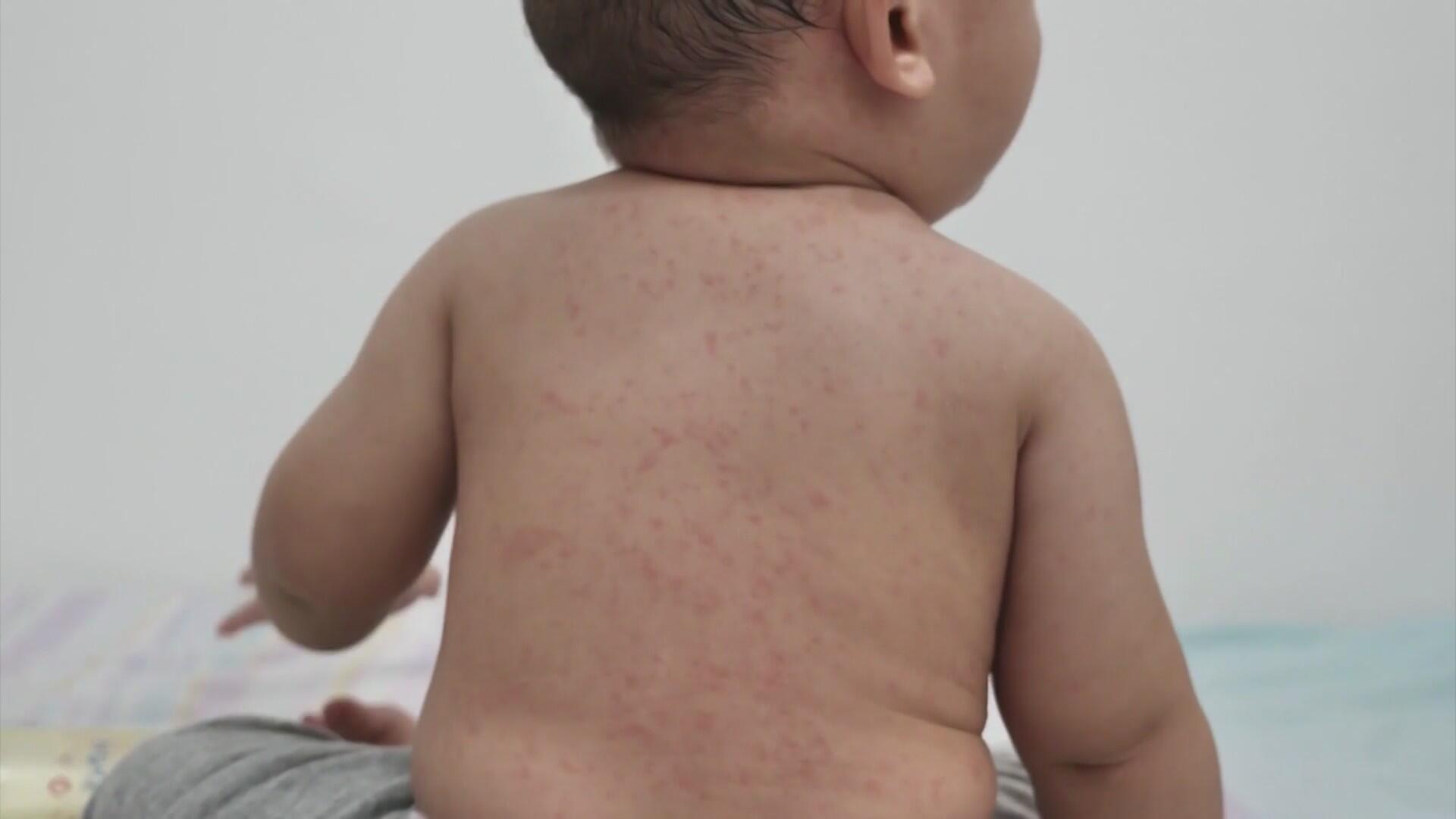As Colorado measles cases grow, doctors share who does, and doesn't, need boosters
As measles cases in Colorado continue to rise, doctors are sharing how to know if you need a booster or not.
Another measles case was reported in Colorado on Thursday, it is the 7th confirmed case of measles in the state. Officials said this case is related to two others we reported this week.
The three people were on the same flight into Denver International Airport earlier this month. The Colorado State Health Department confirmed the most recent case was a vaccinated adult who was a passenger on a Turkish Airlines flight that flew to Denver on May 13.
An out-of-state traveler and a 5-year-old child from Arapahoe County are the other two people on that flight who have been confirmed with the disease. That child was unvaccinated and is currently being treated at Children's Hospital Colorado.
This third person, also an Arapahoe County resident, was in several public spaces in Denver, Aurora, Greenwood Village, and Evergreen while infectious between May 22 and 26.
Seven cases may not seem like a big surge, but in 2024, there were zero cases in the state. After the measles vaccine was introduced, the disease was considered almost eradicated.
With a recent surge in cases, it's leading to many questions about who may need a booster. Doctors said, unless you are unvaccinated, don't stress out too much.
People born before 1957 are considered immune because the disease was so prevalent that they are presumed to have been exposed. In 1963, the vaccine was introduced, and anyone who got it should have some level of immunity. If you were born between 1963 and 1967 you might have an inactive version of the vaccine. If you have had two doses of the live vaccine, doctors said you should be okay. And if it's been a while since you've had a vaccine? Well, doctors said that's ok too.
"Those people who have had 2 doses of that vaccine virus, that is almost completely enough to prevent against measles for the rest of your life," said Dr. Dan Pastula, Head of Neuro Infectious Diseases at UCHealth.
If you are concerned or you are at a high risk for exposure, you should talk to your healthcare provider.
"You can get tested to see if you have immunity. And if you don't, then you could get a booster. But for the average person, no, we don't need to have a booster shot," said Dr. Bob Belknap, the Director of the Public Health Institute at Denver Health.
Tests for measles immunity measure IgG antibody levels and can be done by a primary care physician and CVS .
Doctors said if you've never had measles, you don't want it.
"Symptoms for measles usually start out with a pretty high fever, along with cough, runny nose, red, itchy, watery eyes. And then the rash comes, and the rash typically starts on the face or near the hairline and then spreads down the body. It's uncomfortable. It's itchy. It can be painful. And in, in the worst case, it can lead to pneumonias, problems in the lungs or even swelling around the brain," said Belknap.
Both doctors agree immunity is the only way to avoid measles, which you can get one of two ways. Surviving measles or a vaccine, and the vaccine is the least troublesome way to gain immunity.
"For anyone who is unvaccinated, it's not worth taking that risk. It's better off to just get the vaccine," said Belknap.
There has been a rumor going around that vitamin A is effective at preventing measles and treating it. Doctors said that's not true, and you can give yourself liver damage if you take too much.








